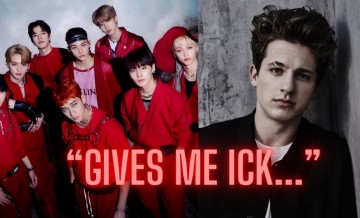'Eat Your Kimchi' Hosts Tackle The Controversial Topics Of 'Slave' Contracts And Break-Even Points
With members of EXO and B.A.P reportedly involved in lawsuits against their record labels, the issue of "slave" contracts has again become a central issue in Korean entertainment coverage, with the hosts of the popular program "Eat Your Kimchi" weighing in on the subject.
A slave contract refers to a long-term, agreement signed by K-pop artists and their management companies, that has been deemed unfairly restrictive by the artist who signed it or their legal representative.
"K-pop slave contracts really came into light in 2009 when three members of TVXQ wound up suing [SM Entertainment] and leaving the band altogether," explained "Eat Your Kimchi" co-host Simon Stawski on this week's episode.
"Since then, there have been a lot of rumors about slave contracts, but nothing really came to the surface," co-host Martina Stawski added.
"But there have been a lot of people leaving or having suspicious activities."
The co-hosts went on to list recent scandals which could have to do with slave contracts, including Kris Wu and Luhan leaving EXO, Sulli taking a hiatus from f(x), Jessica Jung allegedly being kicked out of Girls' Generation, Block B suing and leaving their former record label, and the most recent lawsuit involving B.A.P and TS Entertainment.
According to published reports, the term "BEP" is used to describe the amount K-pop idols owe their record label after debuting.
"So then you debut and you start selling singles and albums, and all that money doesn't go to the artist, but it goes toward that BEP," Martina said.
"The money that you earn is going back into that. It's kind of like having a debt or a loan with somebody."
The "Eat Your Kimchi" host alleged that the reason K-pop idols don't not have any personal income even years after their debut is because the amount idols make are largely divided into money that go toward their BEP or the company's salaries.
"We have heard and we have read that the BEP is not actually transparent, nor are your earnings," Martina said.
"Which means, you do not know how much you have left to owe or how much they are spending on things. You're basically kept in the dark for as long as humanly possible."
To learn more about BEP, check out the video below:
















